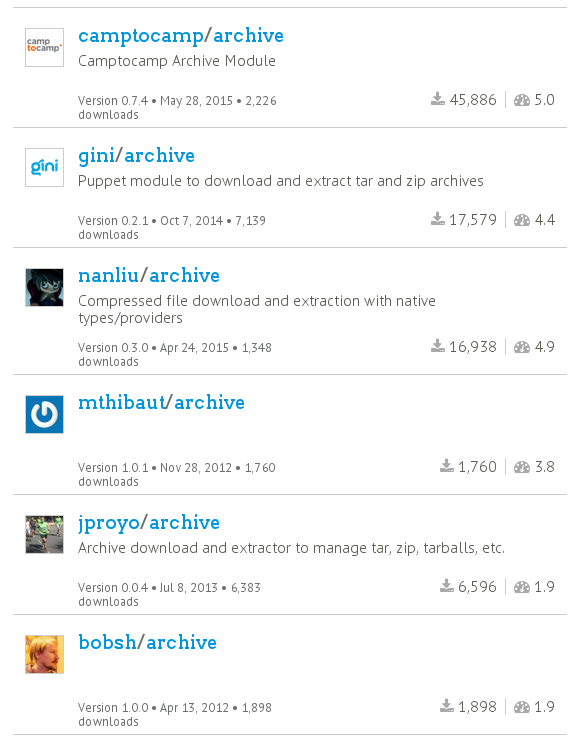Deploying OpenDaylight
Daniel Farrell
Red Hat SDN Team
"State of ODL's Deployment Ecosystem"
"ODL's Deployment Building Blocks"
VERY QUICK: INTRO TO ME
Daniel Farrell
Software Engineer, Red Hat SDN Team
VERY QUICK: INTRO TO ME
Code!
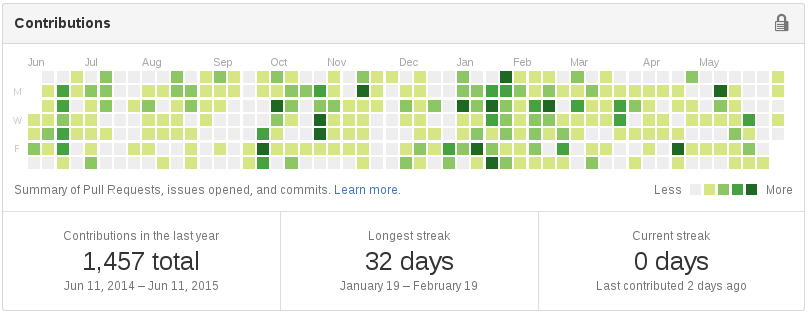
VERY QUICK: INTRO TO ME
OpenDaylight Integration Committer
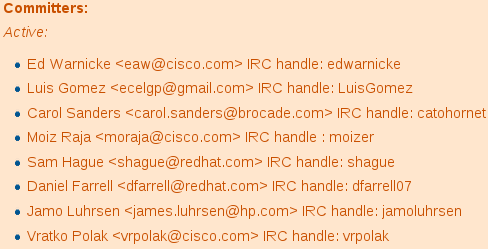
VERY QUICK: INTRO TO ME
Robotics advisor
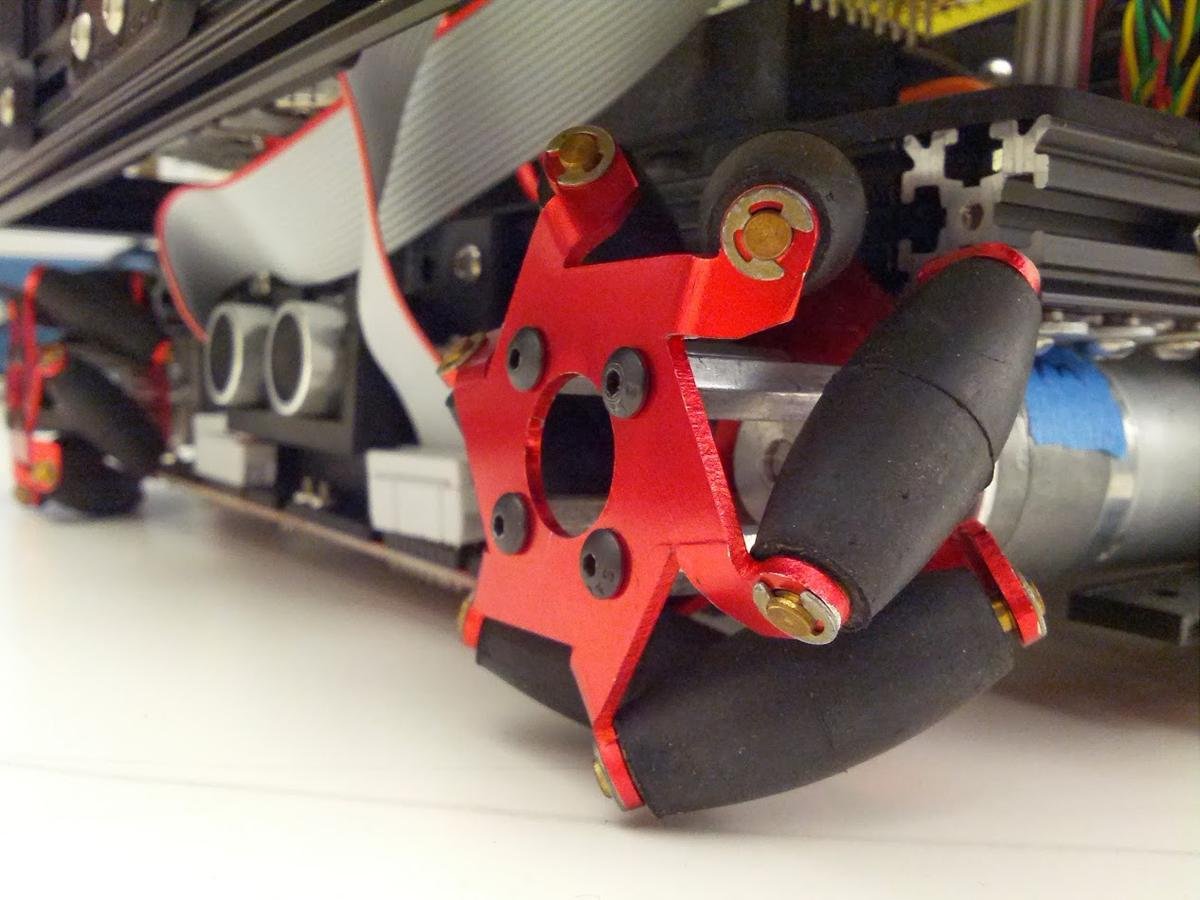
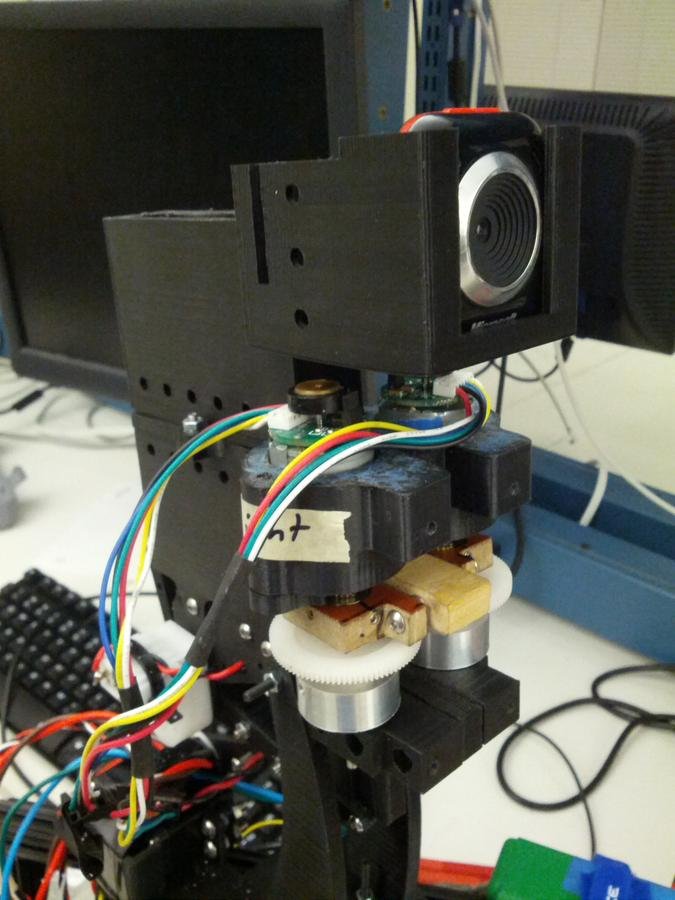
VERY QUICK: INTRO TO ME
Craft beer lover

VERY QUICK: INTRO TO ME
Or other interesting drinks

VERY QUICK: INTRO TO ME
(Pedal) Biker

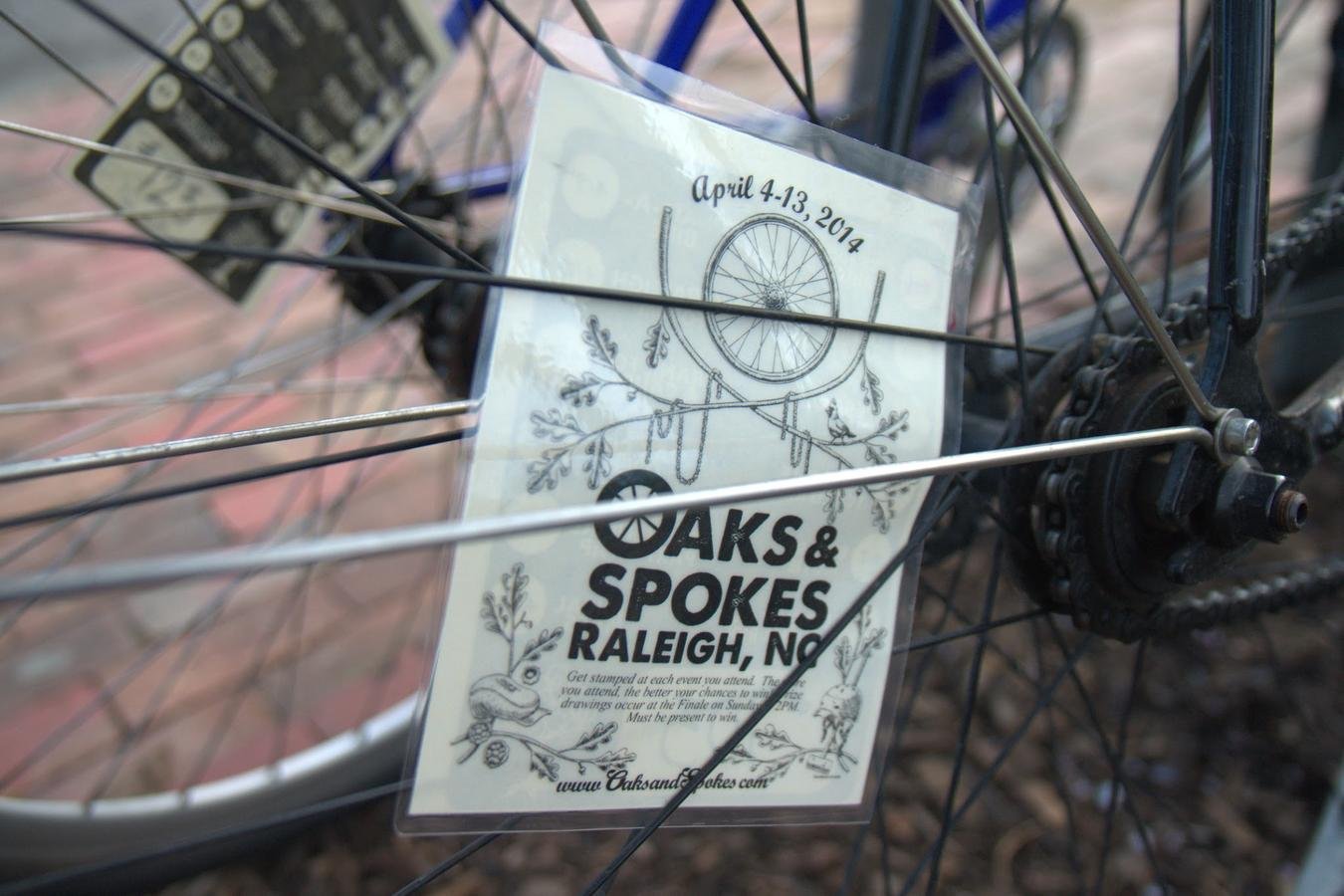
VERY QUICK: INTRO TO ME
High adventure generally


Outline
OUTLINE
Overview of deployment options
Outline
vagrant-opendaylight
Outline
RPM
OUTLINE
Puppet module
OUTLINE
Ansible role
Outline
Docker
Outline
Vagrant base box
Outline
Packer
vagrant-opendaylight
Vagrant-OpenDaylight
An ODL deployment sandbox
vagrant-opendaylight
[~/vagrant-opendaylight]$ vagrant status
Current machine states:
cent7_pup_rpm not created (virtualbox)
cent7_ansible not created (virtualbox)
cent7_pup_tb not created (virtualbox)
cent7_rpm not created (virtualbox)
f20_pup_rpm not created (virtualbox)
f20_pup_tb not created (virtualbox)
f20_rpm not created (virtualbox)
f21_pup_rpm saved (virtualbox)
f21_pup_tb not created (virtualbox)
f21_rpm saved (virtualbox)
vagrant-opendaylight
We'll reference its examples
Manual
Manual
"Just download and run"
Manual
Let's try it...
Manual
[~/sandbox]$ vagrant init -m centos/7
[~/sandbox]$ cat Vagrantfile
Vagrant.configure(2) do |config|
config.vm.box = "centos/7"
end
Manual
[~/sandbox]$ vagrant upManual
[~/sandbox]$ vagrant ssh
[vagrant@localhost ~]$Manual
[vagrant@localhost ~]$ curl -o distribution-karaf-0.2.3-Helium-SR3.tar.gz \
<long tarball URL>Manual
[vagrant@localhost ~]$ sudo mkdir /opt/opendaylight Manual
[vagrant@localhost ~]$ sudo tar -x
--strip-components=1
--directory=/opt/opendaylight
-f <long tarball name>
Manual
[vagrant@localhost ~]$ sudo /opt/opendaylight/bin/karaf server
karaf: java command not found
Manual
[vagrant@localhost ~]$ sudo yum install -y javaManual
vagrant@localhost ~]$ sudo /opt/opendaylight/bin/karaf server &
Manual
Running as root :(
[vagrant@localhost bin]$ ps -u -p `pgrep java` | awk {'print $1'}
rootManual
Create `odl:odl` user:group?
Manual
Want a home dir for that user?
Manual
chown ODL's dir to `odl:odl`
Manual
Restart ODL service
Manual
(if only you had systemd support)
Manual
Login and configure Karaf features?
Manual
Port configuration?
Manual
Fine for devs
Manual
Automatic deployments?
Manual
OPNFV?
manual
First user experience?
manual
Modern users expect better
Manual
Modern deployments need better
RPM
RPM
Copr
RPM
Example
RPM
Copy Copr repo URL

RPM
Install ODL's repo
[~]$ sudo curl -so /etc/yum.repos.d/opendaylight.repo <long Copr URL>
RPM
Install ODL
[~]$ sudo yum install -y opendaylight
<snip>
Installed:
opendaylight.noarch 0:0.2.3-2.fc20
Complete!
RPM
Systemd integration
[~]$ sudo systemctl start opendaylight
RPM
Systemd integration
[~]$ sudo systemctl is-active opendaylight
active
RPM
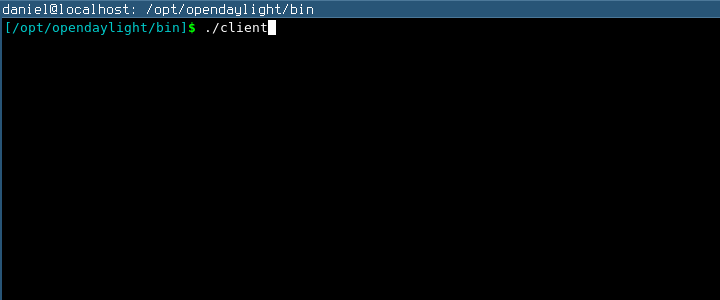
RPM
[/opt/opendaylight/bin]$ ./client
<snip>
opendaylight-user@root>feature:install ... RPM
#endexample
RPM
Future: Host in more official location
(CentOS NFV SIG, ODL infra)
Puppet
Puppet
Puppet Forge
Puppet
Stable
Puppet
Well documented
Puppet
We work to make contributing easy.
Puppet
OS
support
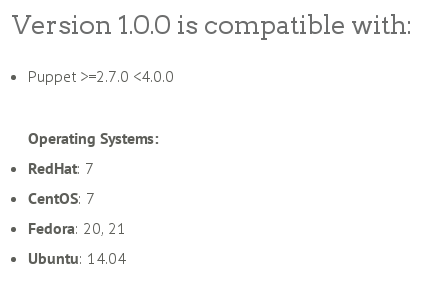
Puppet
Community: Ubuntu support
Puppet
Supports tarball-based installs
Puppet
class { 'opendaylight':
install_method => 'tarball',
tarball_url => '<URL to your custom tarball>',
unitfile_url => '<URL to your custom unitfile>',
} Puppet
Major part of OPNFV
Puppet
[~]$ less genesis/puppet/opnfv/manifests/network.pp
<snip>
class { "opendaylight":
features => [<OPNFV's Karaf features>],
}
<snip> Puppet
Well tested
PUPPET
rspec-puppet
Puppet
[~/puppet-opendaylight]$ bundle exec rake testPuppet
At a high level...
Puppet
In detail...
Puppet
---> syntax:manifests
---> syntax:templates
---> syntax:hiera:yamlPuppet
Finished in 14.14 seconds (files took 0.53374 seconds to load)
537 examples, 0 failures
Total resources: 17
Touched resources: 17
Resource coverage: 100.00%Puppet
rspec-puppet
"We're saying what we expected we said"
Puppet
metadata-json-lint metadata.jsonPuppet
Beaker
Puppet
Deploy against real VMs
Puppet
Verify resulting state
Puppet
Repeat for various configs
Puppet
At a high level...
Puppet
In detail...
Puppet
Bringing machine 'centos-7' up with 'virtualbox' provider...centos-7 12:45:09$ yum install -y puppetPuppet
centos-7 12:45:46$ puppet apply <test manifest>Puppet
centos-7 12:49:37$ /bin/sh -c systemctl\ is-active\ opendaylight
active
centos-7 executed in 0.04 seconds
should be runningPuppet
centos-7 12:49:37$ /bin/sh -c id\ odl
uid=1001(odl) gid=1001(odl) groups=1001(odl)
centos-7 executed in 0.04 seconds
should existPuppet
centos-7 executed in 0.05 seconds
should match /^featuresBoot=standard,ssh/Puppet
Finished in 5 minutes 22 seconds (files took 1 minute 10.87 seconds to load)
51 examples, 0 failuresPuppet
Beaker is pretty great
Puppet
Example: Vagrant provisioner
Puppet
At a high level...
Puppet
# Box that installs ODL via Puppet RPM method on CentOS 7
config.vm.define "cent7_pup_rpm" do |cent7_pup_rpm|
# Build Vagrant box based on CentOS 7
cent7_pup_rpm.vm.box = "chef/centos-7.0"
# Add EPEL repo for access to Puppet et al
cent7_pup_rpm.vm.provision "shell", inline: "yum install -y epel-release"
# Install Puppet
cent7_pup_rpm.vm.provision "shell", inline: "yum install -y puppet"
# Install OpenDaylight using its Puppet module
cent7_pup_rpm.vm.provision "puppet" do |puppet|
puppet.module_path = ["modules"]
puppet.manifest_file = "odl_install.pp"
end
endPuppet
In detail...
Puppet
Install Puppet
Puppet
Configure provisioner
# Install OpenDaylight using its Puppet module
cent7_pup_rpm.vm.provision "puppet" do |puppet|
puppet.module_path = ["modules"]
puppet.manifest_file = "odl_install.pp"
end Puppet
puppet.module_path = ["modules"]Puppet
[~/vagrant-opendaylight]$ librarian-puppet install
[~/vagrant-opendaylight]$ ls modules
archive java opendaylight stdlibPuppet
[~/vagrant-opendaylight]$ cat Puppetfile
#!/usr/bin/env ruby
forge "https://forgeapi.puppetlabs.com"
mod 'dfarrell07-opendaylight',
:git => 'git://github.com/dfarrell07/puppet-opendaylight.git',
:ref => 'origin/master'Puppet
puppet.manifest_file = "odl_install.pp"Puppet
[~/vagrant-opendaylight]$ cat manifests/odl_install.pp
class { 'opendaylight':
extra_features => ['odl-ovsdb-openstack'],
}Puppet
Provision the box
Puppet
[~/vagrant-opendaylight]$ vagrant up cent7_pup_rpmPuppet
ODL installed
Notice: /Stage[main]/Opendaylight::Install/Yumrepo[opendaylight]/ensure: created
Notice: /Stage[main]/Opendaylight::Install/Package[opendaylight]/ensure: createdPuppet
Features configured
/Stage[main]/Opendaylight::Config/File[org.apache.karaf.features.cfg]/content: content changed '<hash>' to '<different hash>'Puppet
Explore
Puppet
[~/vagrant-opendaylight]$ vagrant ssh cent7_pup_rpm
[vagrant@localhost ~]$Puppet
[vagrant@localhost ~]$ sudo systemctl is-active opendaylight
activePuppet
[vagrant@localhost ~]$ /vagrant/scripts/connect.shPuppet
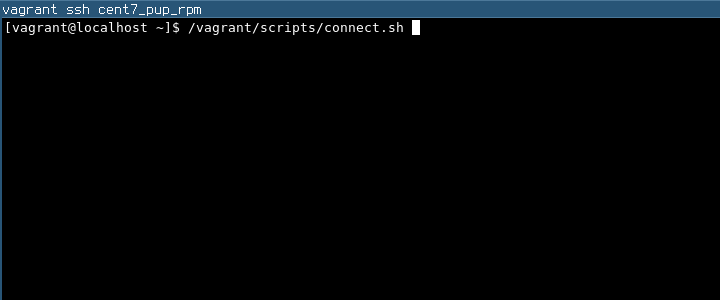
Puppet
opendaylight-user@root>config:list | grep featuresBoot\ =
featuresBoot = <default features>,odl-ovsdb-openstack
Puppet
opendaylight-user@root>feature:list | grep odl-ovsdb-openstack
odl-ovsdb-openstack | 1.0.3-Helium-SR3 | x | ovsdb-1.0.3-Helium-SR3 <snip>Puppet
#endexample
Puppet
Con: Complexity vs Ansible
(for me, not for users)
Puppet
Con: Ecosystem quality
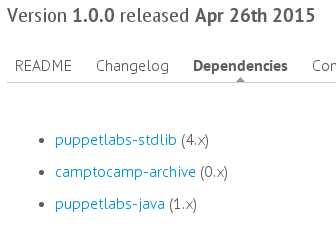
Puppet
Future: OS support updates
Puppet
Future: Beaker using containers for speed
Puppet
Future:
Stackforge? OpenStack Puppet mods?
Ansible
Ansible
Ansible Galaxy
Ansible
Simple
Ansible
[~/ansible-opendaylight]$ cat tasks/main.yml
---
- include: add_odl_yum_repo.yml
- include: install_odl_rpm.yml
- include: configure_karaf_features.yml
- include: configure_nb_rest_port.yml
- include: open_nb_rest_port.yml
- include: start_odl_systemd_service.yml
Ansible
- name: Start ODL systemd service
service:
name=opendaylight
enabled=yes
state=started
Ansible
- name: Configure ODL Karaf features
template:
src=org.apache.karaf.features.cfg
dest=/opt/opendaylight/etc/
owner=odl
group=odl
notify:
- Stop ODL
- Cleanup Karaf
- Start ODL
Ansible
[~/ansible-opendaylight]$ wc -l **/*.yml
<snip>
166 totalAnsible
Rejects Puppet's style of testing
“don’t unit test your playbook"
“Ansible believes you should not need another framework to validate basic things of your infrastructure”
Ansible
So no rspec-puppet or Beaker
Ansible
Beaker was kinda nice...
Ansible
No tears for rspec-puppet
Ansible
Fail fast and clearly
Ansible
Focus on the deployment logic
Ansible
Example: Vagrant provisioner
Ansible
At a high level...
Ansible
# Box that installs ODL via its Ansible role on CentOS 7
config.vm.define "cent7_ansible" do |cent7_ansible|
# Build Vagrant box based on CentOS 7
cent7_ansible.vm.box = "chef/centos-7.0"
# Install ODL using the Ansible provisioner
cent7_ansible.vm.provision "ansible" do |ansible|
# Path to playbook that installs ODL using ODL's Ansible role
ansible.playbook = "provisioning/playbook.yml"
end
endAnsible
In detail...
Ansible
ansible.playbook = "provisioning/playbook.yml"
Ansible
[~/vagrant-opendaylight]$ cat provisioning/playbook.yml
---
- hosts: all
sudo: yes
roles:
- opendaylightansible
Provision the box
Ansible
[~/vagrant-opendaylight]$ vagrant up cent7_ansibleansible
At a high level...
Ansible
In detail...
Ansible
TASK: [opendaylight | Add ODL yum repo] **********************************
changed: [cent7_ansible]
TASK: [opendaylight | Install ODL RPM] ***********************************
changed: [cent7_ansible]
Ansible
TASK: [opendaylight | Configure ODL Karaf features] **********************
changed: [cent7_ansible]
Ansible
TASK: [opendaylight | Configure ODL NB REST port] ************************
changed: [cent7_ansible]
TASK: [opendaylight | Check if FirewallD service is running] *************
ok: [cent7_ansible]
TASK: [opendaylight | Open ODL NB REST port via FirewallD] ***************
skipping: [cent7_ansible] Ansible
TASK: [opendaylight | Start ODL systemd service] *************************
changed: [cent7_ansible]
Ansible
Explore
Ansible
[~/vagrant-opendaylight]$ vagrant ssh cent7_ansible
[vagrant@localhost ~]$Ansible
[vagrant@localhost ~]$ sudo systemctl is-active opendaylight
activeAnsible
Example: config change
Ansible
[~/vagrant-opendaylight]$ cat provisioning/playbook.yml
---
- hosts: all
sudo: yes
roles:
- role: opendaylight
- extra_features: ['odl-ovsdb-openstack']ansible
At a high level...
Ansible
In detail...
Ansible
TASK: [opendaylight | Configure ODL Karaf features] **********************
changed: [cent7_ansible]
Ansible
NOTIFIED: [opendaylight | Stop ODL] **************************************
changed: [cent7_ansible]
NOTIFIED: [opendaylight | Cleanup Karaf] *********************************
changed: [cent7_ansible]
NOTIFIED: [opendaylight | Start ODL] *************************************
changed: [cent7_ansible]Ansible
Explore
Ansible
[~/vagrant-opendaylight]$ vagrant ssh cent7_ansibleAnsible
[vagrant@localhost ~]$ sudo systemctl is-active opendaylight
activeAnsible
[vagrant@localhost ~]$ /vagrant/scripts/connect.sh
Ansible

Ansible
opendaylight-user@root>config:list | grep odl-ovsdb-openstack
featuresBoot = config,<snip>,odl-ovsdb-openstackAnsible
opendaylight-user@root>feature:list | grep odl-ovsdb-openstack
odl-ovsdb-openstack | 1.0.3-Helium-SR3 | x | ovsdb-1.0.3-Helium-SR3 <snip>Ansible
Example: Remote host
Ansible
[~]$ sudo ansible-galaxy install dfarrell07.opendaylightAnsible
[~/sandbox]$ cat /etc/ansible/hosts
odl_box ansible_ssh_host=10.3.12.87 ansible_ssh_user=centosAnsible
[~/sandbox]$ cat install_odl.yml
---
- hosts: odl_box
sudo: yes
roles:
- opendaylightAnsible
[~/sandbox]$ ansible-playbook install_odl.ymlansible
At a high level...
ansible
In detail...
Ansible
TASK: [opendaylight | Configure ODL Karaf features] **************************
changed: [odl_box]Ansible
TASK: [opendaylight | Start ODL systemd service] *****************************
changed: [odl_box]Ansible
[~/sandbox]$ ssh ansible0
Ansible
[centos@dfarrell-ansible0 ~]$ sudo systemctl is-active opendaylight
active
Ansible
[centos@dfarrell-ansible0 ~]$ /opt/opendaylight/bin/client
Ansible
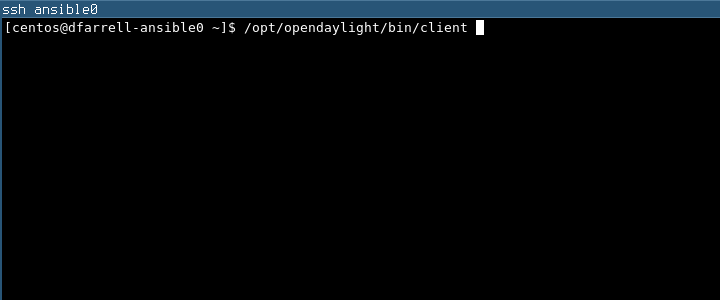
Ansible
#endexamples
Ansible
Future: cluster support
Ansible
Future: Integrate ODL + OPNFV?
Ansible
Future: Wider OS support
Ansible
Future: Expanded used by Packer
Ansible
Future: Test in build system
Docker
Docker
Docker Hub
Docker
Example: One-liner Karaf shell
Docker
[~/sandbox]$ docker run -ti dfarrell07/odl:0.2.3 ./bin/karaf
Docker
[~/sandbox]$ docker ps
CONTACONTAINER ID IMAGE COMMAND
b2869594fab3 dfarrell07/odl:0.2.3 "./bin/karaf"Docker
Example: Build ODL's Docker image
Docker
[~/integration/packaging/docker]$ docker build -t dfarrell07/odl:0.2.3 .Docker
At a high level...
Docker
In detail...
Docker
(needs an update)
Step 0 : FROM debian:7
---> 479215127fa7Docker
Install Java
Step 2 : RUN apt-get update && apt-get install -y openjdk-7-jre-headless wget
---> Using cache
---> 7f3f5c682c1cDocker
Very basic tarball-based install
Step 5 : RUN wget...Docker
Open ports
Step 6 : EXPOSE 162 179 1088 1790 1830 2400 2550 2551 2552 4189 4342 5005 5666 6633 6640 6653 7800 8000 8080 8101 8181 8383 12001
---> Running in 8625b7f32695
---> 0be36e6be661Docker
Start ODL
(lacks systemd support)
Step 9 : CMD ./bin/karaf server
---> Running in 16cab37bf9c2
---> af863ac2de74Docker
#endexamples
docker
OPNFV Fuel uses containerized ODL
Docker
Future: Examples that build on base image
Docker
Future: Docker Hub ODL org
Docker
Future: Host containers on ODL infra?
Docker
Future: Build snapshots
Docker
Future: Build containers via Packer instead?
Vagrant base box
Vagrant Base Box
Best user experience?
Vagrant Base Box
Example
Vagrant Base Box
[~/sandbox]$ vagrant init -m dfarrell07/opendaylight
[~/sandbox]$ cat Vagrantfile
Vagrant.configure(2) do |config|
config.vm.box = "dfarrell07/opendaylight"
end
Vagrant Base Box
[~/sandbox]$ vagrant upVagrant Base Box
default: URL: https://atlas.hashicorp.com/dfarrell07/opendaylight
==> default: Adding box 'dfarrell07/opendaylight' (v2.3.0)Vagrant Base Box
[~/sandbox]$ vagrant status
Current machine states:
default running (virtualbox)Vagrant Base Box
[~/sandbox]$ vagrant sshVagrant Base Box
[vagrant@localhost ~]$ sudo systemctl is-active opendaylight
activeVagrant Base Box
#endexample
Vagrant Base Box
Future: Support libvirt provider
Vagrant Base Box
Future: Support other OSs
Vagrant Base Box
Future: Convert Vagrantfiles to use ODL base
Vagrant Base box
Future: Official ODL account
Vagrant Base Box
Future: Integrate with build system
(build snapshots)
Vagrant Base Box
Future: Host on ODL infra
Packer
Packer
Creates ODL's Vagrant base box
Packer
Simple
Packer
[~/integration/packaging/packer]$ packer build centos.jsonPacker
At a high level...
Packer
Details...
(but quickly)
Packer
Install CentOS from ISO against VM
Packer
Basic OS config via Kickstart
Packer
Shell provisioners
"provisioners": [
{
"type": "shell",
"scripts":
[
"config_vagrant.sh",
"config_virtualbox.sh",
"config_ansible.sh"
]
},Packer
Ansible role installs ODL
#..."provisioners": [
{
"type": "ansible-local",
"playbook_file": "install_odl.yml"
}
Packer
Package as a Vagrant box
"post-processors": [
{
"type": "vagrant",
"compression_level": "9",
"output": "opendaylight-{{ user `box_version` }}-centos-1503.box"
}
]
Packer
==> Builds finished. The artifacts of successful builds are:
--> virtualbox' provider box: opendaylight-2.3.0-centos-1503.boxPacker
[~/integration/packaging/packer]$ ls -rc | tail -n 1
opendaylight-2.3.0-centos-1503.boxPacker
[~/sandbox]$ vagrant box add --name "opendaylight" \
opendaylight-2.3.0-centos-1503.box
Packer
[~/sandbox]$ vagrant init -m opendaylight
Packer
[~/sandbox]$ cat Vagrantfile
Vagrant.configure(2) do |config|
config.vm.box = "opendaylight"
endPacker
[~/sandbox]$ vagrant up
==> default: Importing base box 'opendaylight'...Packer
[~/sandbox]$ vagrant sshPacker
[vagrant@localhost ~]$ sudo systemctl is-active opendaylight
activePacker
#endexample
Packer
Everything' s in VCS
Packer
Configuration possible through Ansible
Packer
Room for growth
Packer
Future: Build containers
Packer
Future: Additional ODL versions
Packer
Future: Additional OS versions
Packer
Future: Integrate into build system
(build snapshots)
Conclusion
Conclusion
ODL has a rich deployment toolset
Conclusion
Reusable, composable building blocks
Conclusion
Enables modern automatic deployments
Conclusion
Enables drive-by exploration
Conclusion
Focus on quality
Conclusion
Contributions welcome :)
Contact
Daniel Farrell
SDN broadcasts via Twitter:
General:
dfarrell@redhat.com
dfarrell07 on IRC, GitHub
